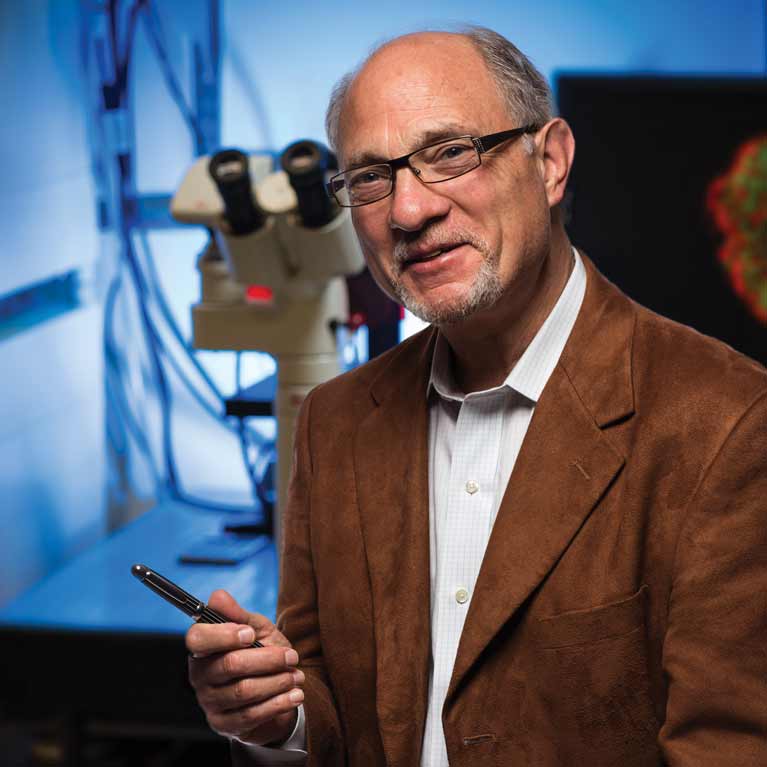Research
Geoffrey Wahl, PhD, is a world-renowned cancer researcher who studied the origin and progression of breast and pancreatic cancers. His work focused on 1) understanding the earliest changes that occur to convert a normal cell to a cancer cell; 2) how these changes generate genetic and phenotypic plasticity and tumor heterogeneity; 3) deciphering the molecular mechanisms that underly the ability of normal cells to acquire the plasticity required to repair wounds; 4) investigating how these plasticity mechanisms are subverted during cancer progression; and 5) developing strategies to inhibit cell state plasticity to limit or prevent early stage cancers from progressing to dangerous, invasive lesions.
Profile
Geoffrey Wahl’s team used state-of-the-art approaches to better understand breast and pancreatic cancers to develop more individualized therapies.
His early work uncovered the first mechanism leading to genome destabilization in cancer and how the most mutated tumor suppressor gene, p53, controls genome stability. His team examined mammary development, cell by cell, from fetus to adult to determine how the mammary gland arises, including the first comprehensive analysis of all genes expressed during the process. They also revealed the first single-cell-resolution look at how chromatin changes in each cell during development. These studies provide a road map for understanding how normal processes are altered as breast cancer arises. The findings have opened new avenues that are being explored for predicting and personalizing the diagnosis and treatment of some of the most aggressive forms of breast cancer.
Wahl’s team also discovered that a rare type of cell generated during pancreatitis, a harbinger of pancreatic cancer, secretes substances that help heal damaged pancreases. This knowledge may lead to new ways to prevent or slow pancreatic cancer progression.
Wahl was elected as president of the American Association for Cancer Research from 2006 to 2007. He also served on the scientific advisory board for the Pancreatic Cancer Action Network from 2007 to 2014, and was a Komen Breast Cancer Scholar from 2010-2020.
He is an elected fellow of the American Academy of Arts and Sciences, American Association for Cancer Research, and American Association for the Advancement of Science. He was a National Cancer Institute (NCI) Outstanding Investigator Awardee, and in 2022 he was recognized with the Susan G. Komen® Brinker Award.
Wahl earned his bachelor’s degree in Bacteriology at UCLA and his PhD in Biological Chemistry at Harvard University. He conducted his postdoctoral training at Stanford University.

